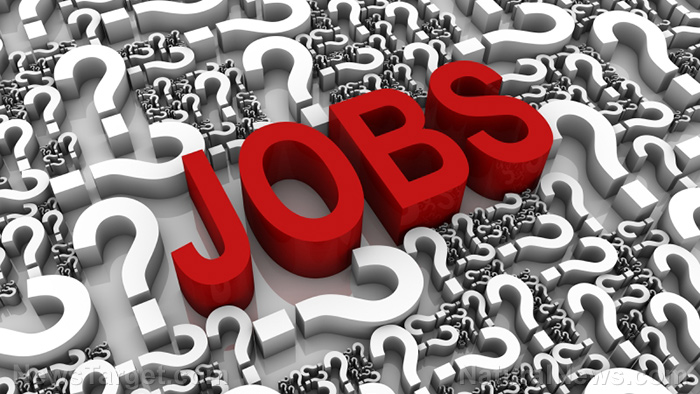Supply chain collapsing as some workers quit, others die from COVID “vaccines”
05/12/2023 / By Ethan Huff

Americans are done slaving away for a pittance at large corporations run by overpaid executives – either that or too many of them have gotten sick or died from getting “vaccinated” for the Wuhan coronavirus (COVID-19) and are no longer able to work.
Whatever the case may be, there are now far fewer people working post-“pandemic” than there were pre-“pandemic” – and the supply chains are collapsing because of it.
Caroline Chumakov, the keynote speaker at this year’s Gartner Supply Chain Symposium, delivered the bad news during a packed opening session, which saw in attendance more than 3,200 people.
“Will we leave a supply chain that lights up careers, feeds global economics, and sustains our planet?” Chumakov asked her audience, revealing that employee turnover is off the charts, as is a lack of employee engagement.
“Only a quarter of our employees are highly engaged and only 16 percent of them are willing to go above and beyond in their jobs,” Chumakov further griped, adding that employee turnover in the supply chain is up 33 percent compared to what it was before COVID-19. (Related: The consequences of the ongoing supply chain collapse will become even more apparent this coming summer, which is just weeks away.)
The global economy is done
Chumakov went on to complain that most supply chain employees have checked out, and many of them are choosing to “quiet quit,” which is becoming a serious problem for the top dogs who “need their labor,” she explained.
“You notice that one of your employees that typically sits in front of the room at a meeting and is very interactive, asking questions is now sitting in the back of the room,” further complained Jose Reyes, a senior director and analyst at Gartner, defining this “quiet quitting” phenomenon that is being seen all across the supply chains.
“And you realize that’s been happening frequently, say for the last couple of months. They’re not engaged and they’re not asking questions.”
Chumakov was more direct in stating that productivity in the supply chain “is at its lowest point in decades” – and probably has a whole lot more to fall before the global economy hits rock bottom.
“The human story is one of progress,” Chumakov went on to opine, trying to sound inspirational. “Have we really reached peak human productivity?”
Unfortunately for those whose jobs rely on other people giving it their all so they can personally benefit at the others’ expense, such an arrangement is no longer working for an increasing number of workers who have had enough of such a scheme.
A recent Gallup survey found that disengaged workers are costing the economy $7.8 trillion in lost productivity worldwide. This is bad news for the fat cats whose obscene salaries, benefits, pensions, and golden parachutes rely on all that cheap labor.
“How much of that $7.8 trillion is hitting my bottom line, and two, how do I avoid having a similar impact or any impact in my organization?” Reyes stated to the room after citing the poll’s results.
Reyes and other supply chain leaders are strategizing new ways to try to keep their often underpaid and overworked employees engaged, but will it work? One thing Reyes says logistics executives need to keep an eye out for is if a manager suddenly stops coaching his employees.
“So that in itself can lead to their direct reports quitting quietly,” Reyes said. “They’re not getting any feedback and it’s not a good feeling to be in.”
With how the world has changed for the worse since covid, it is really no surprise that many are checking out of the system. After all, what do they stand to gain from being milked dry and tossed to the curb by the globalist “elite,” leaving them with no chance of a future?
More of the latest news about the downfall of the West can be found at Collapse.news.
Sources for this article include:
Submit a correction >>
Tagged Under:
Bubble, chaos, Collapse, COVID, debt bomb, debt collapse, economic riot, employees, Inflation, market crash, pandemic, panic, productivity, risk, supply chain, Vaccine deaths, vaccines, workers
This article may contain statements that reflect the opinion of the author
RECENT NEWS & ARTICLES
COPYRIGHT © 2017 RISK NEWS




















